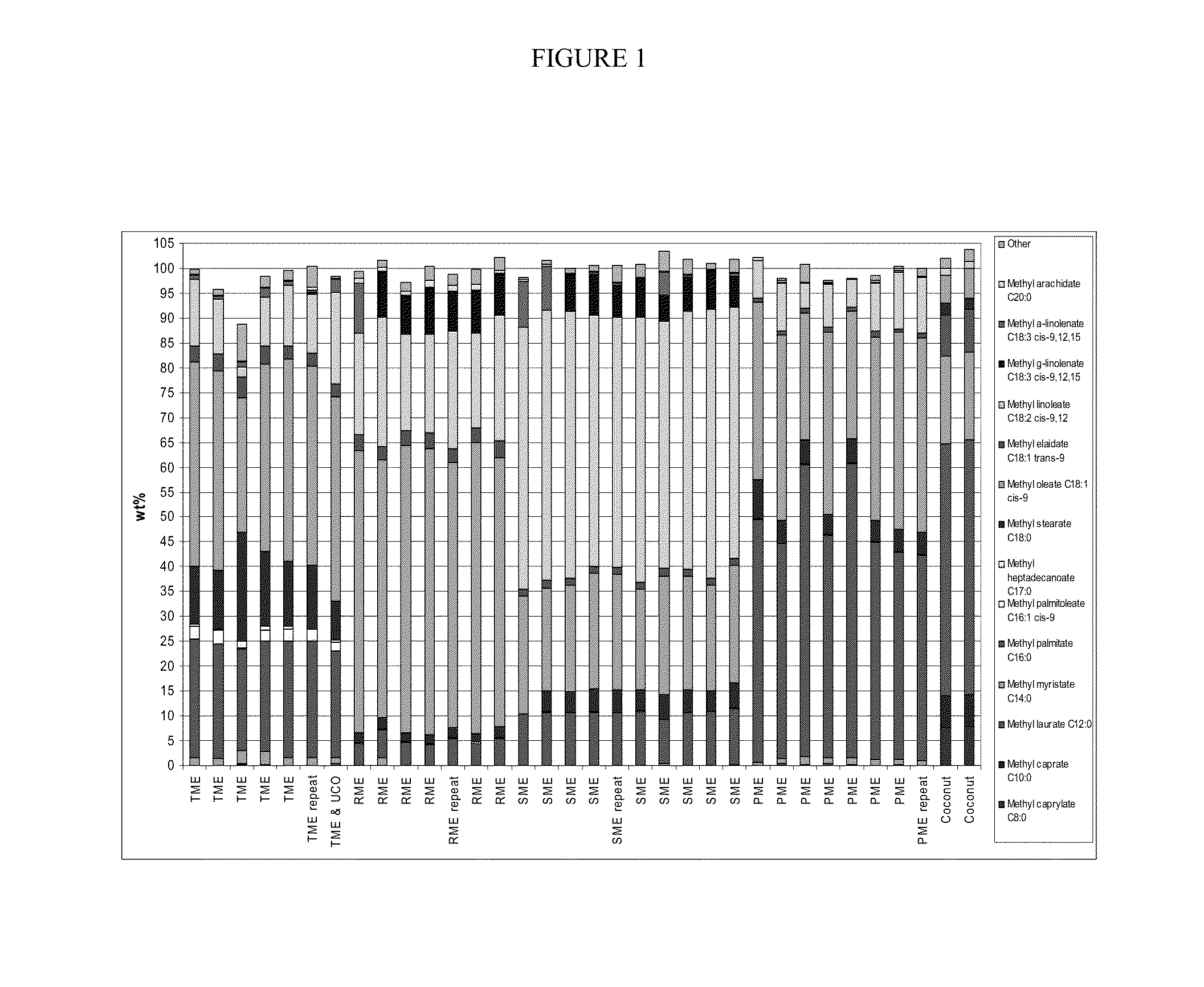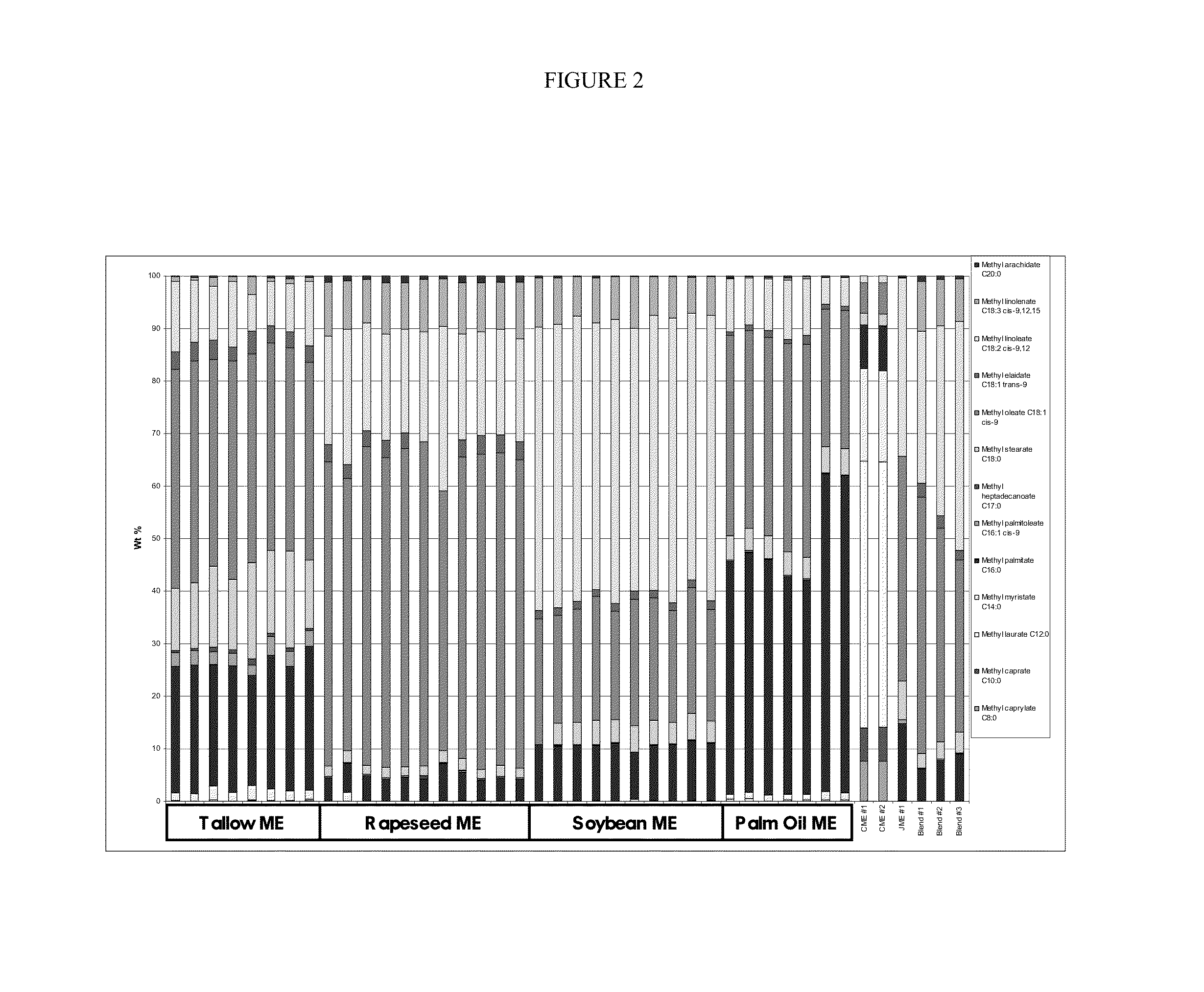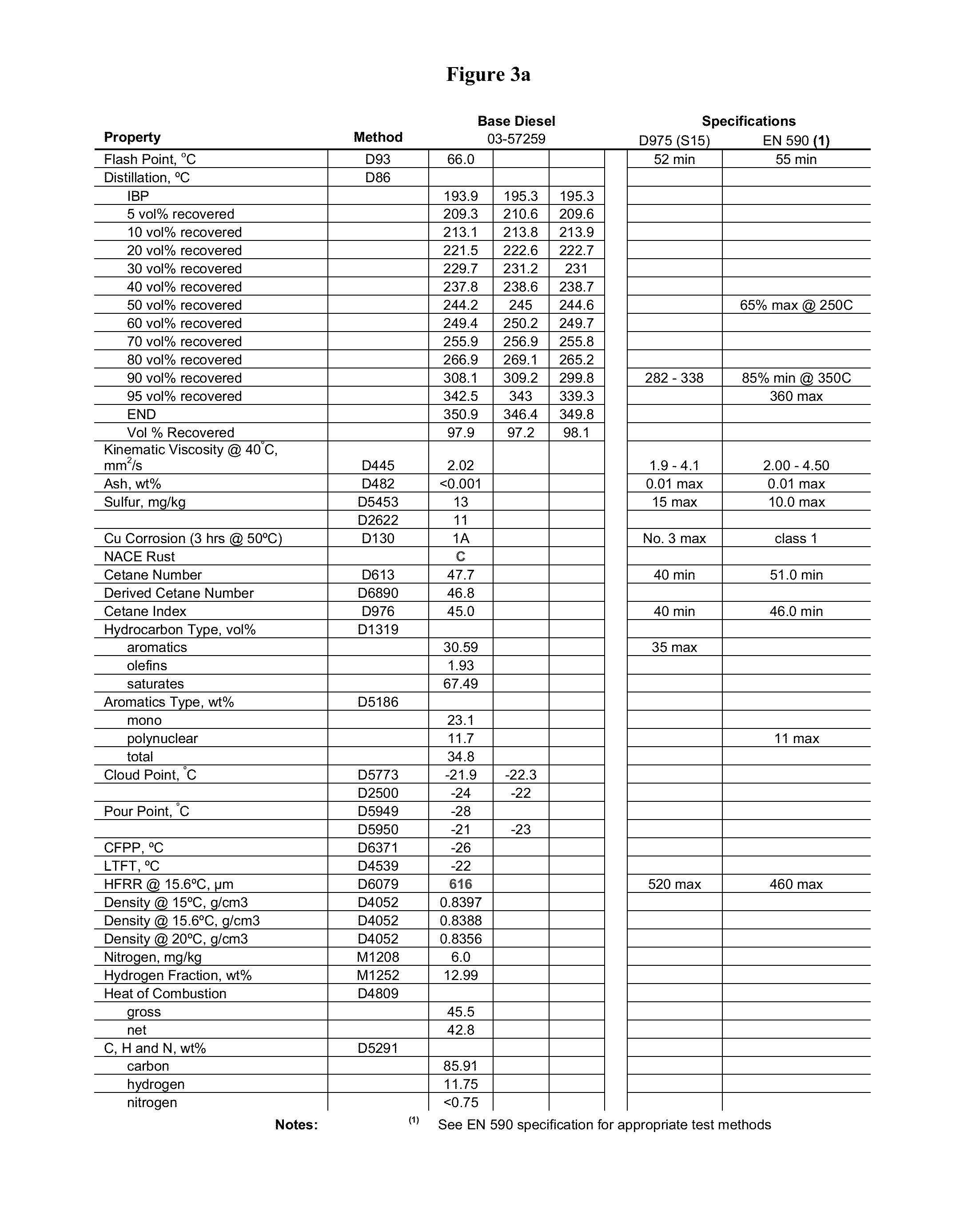Methods for analyzing and optimizing biofuel compositions
a biofuel composition and optimization technology, applied in the field of biofuel composition analysis and optimization, can solve the problems of inability to predict the exact feedstock composition of a purchased biodiesel, formulators are often unable to predict the performance so as to improve the efficiency of the finished fuel blend, and reduce the consumption of food sources
- Summary
- Abstract
- Description
- Claims
- Application Information
AI Technical Summary
Benefits of technology
Problems solved by technology
Method used
Image
Examples
example 1
[0102]The fatty acid methyl ester (FAME) profiles of thirty biodiesel samples were analyzed by gas chromatography. The resultant analyses of biodiesel composition by feedstock type were entered into a database and are presented in FIG. 1.
[0103]The following components were used to prepare Blends #1 through #8 below:
[0104]Soybean Methyl Ester (SME)—Code #06-23754
[0105]Rapeseed Methyl Ester (RME)—Code #06-24237
[0106]Tallow Methyl Ester (TME)—Code #06-23646
[0107]Palm Oil Methyl Ester (PME)—Code #07-17170
[0108]ULSD—Code #03-57259.
[0109]The following blends were prepared.
[0110]Blend #1 SME / RME / TME / PME (25 / 75 / 0 / 0 vol %)
[0111]Blend #2 SME / RME / TME / PME (50 / 50 / 0 / 0 vol %)
[0112]Blend #3 SME / RME / TME / PME (75 / 25 / 0 / 0 vol %)
[0113]Blend #4 SME / RME / TME / PME (25 / 25 / 25 / 25 vol %)
[0114]Blend #5 SME / RME / TME / PME (40 / 30 / 20 / 10 vol %)
[0115]Blend #6 ULSD / SME (80 / 20 vol %)
[0116]Blend #7 ULSD / Blend #2 (80 / 20 vol %) (composition of the
[0117]biodiesel being SME / RME / TME / PME (10 / 10 / 0 / 0 vol %)
[0118]Blend #8 ULSD / Blend ...
example 2
[0135]The fatty acid methyl ester (FAME) profiles of forty two biodiesel samples were analyzed by gas chromatography. The resultant analyses of biodiesel composition by feedstock type were normalized and entered into a database and are presented in FIG. 2.
[0136]FIGS. 3a, 3b, 3c and 3d present the fuel composition, fuel properties, and fuel fatty acid alkyl ester profile determined in Example 2. FIG. 3a presents the base diesel fuel properties determined in Example 2. FIG. 3b is the FAME Composition Calculator (fuel fatty acid alkyl ester profile) determined in Example 2. FIG. 3c is the GC analysis of biodiesel samples determined in Example 2. FIG. 3d is the IQT data determined in Example 2.
[0137]To a base diesel fuel (with an ASTM D6890 derived cetane number of 46.8; FIG. 3a) was added 10 vol % of a B100 sample (determined algorithmically (FIG. 3c) to comprise mostly PME). The resultant blend had an ASTM D6890 derived cetane number of 51.6. The following algorithms were used:
[0138](...
PUM
| Property | Measurement | Unit |
|---|---|---|
| cetane number | aaaaa | aaaaa |
| composition | aaaaa | aaaaa |
| gas chromatograph | aaaaa | aaaaa |
Abstract
Description
Claims
Application Information
 Login to View More
Login to View More - R&D
- Intellectual Property
- Life Sciences
- Materials
- Tech Scout
- Unparalleled Data Quality
- Higher Quality Content
- 60% Fewer Hallucinations
Browse by: Latest US Patents, China's latest patents, Technical Efficacy Thesaurus, Application Domain, Technology Topic, Popular Technical Reports.
© 2025 PatSnap. All rights reserved.Legal|Privacy policy|Modern Slavery Act Transparency Statement|Sitemap|About US| Contact US: help@patsnap.com



